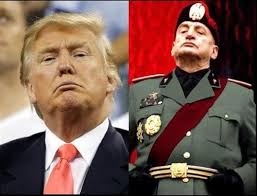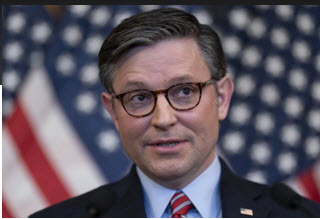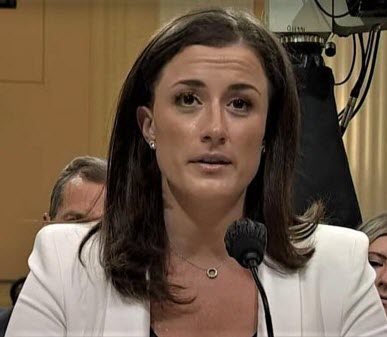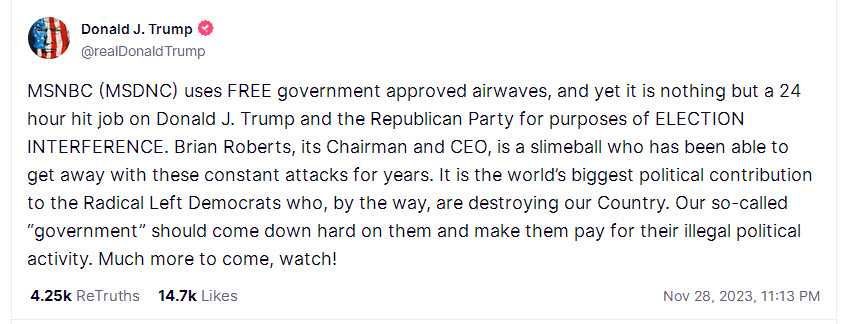Colorado’s Tossing Trump Off Ballot Stirs Legal Uproar
The Colorado Supreme Court’s decision that Donald Trump must be removed from that state’s 2024 election ballot ignited outrage on the right. Even some on the left feared the repercussions.
In the fervent debate that ensued, we heard that the amendment applies only to prior “officers” of the government who engaged in insurrection, but the president was not an officer; that Section 3 of the Fourth Amendment pertains only to insurrection, but who is to decide the attack on the Capitol was an insurrection?; that the 1868 amendment was to keep Civil War confederates from regaining office, so what’s that got to do with now? For a couple of days in the week before Christmas, it felt like law school.
Section 3 of the Fourth Amendment bans certain categories of persons from holding office, civil or military, if they have taken an oath to the Constitution and then engaged in insurrection against the government. We explained it a short time ago in an article you can access here.
“I think that this case is legally wrong and untenable”, intoned Bill Barr, Donald Trump’s second attorney general. “And I think this kind of action of stretching the law, taking these hyper-aggressive positions to try to knock Trump out of the race, are counter-productive”.
Michael Luttig, a former U.S. Court of Appeals judge whom we’re told Republicans hold in high regard, fired back with, “The former attorney general is categorically incorrect to the extent that he was commenting on the legal deficiency of the Colorado Supreme Court’s decision” and called it “an impeccable decision…irrefutable.”
Jonathan Turley, a conservative law professor at George Mason University who regularly supplies legal commentary to cable news programs, called it “the most anti-democratic opinion I’ve seen in my lifetime”.
All seven Colorado justices were appointed by Democratic governors, only three are Democrats, and they split in their ruling 4-to-3. Nevertheless, on Fox News’s “Sunday Morning Futures”, Wisconsin’s often-confused Republican Senator Ron Johnson said about the decision,
“Well, radical leftism has infiltrated every institution in this country, our courts, our education system, government agencies. It’s a real problem.”
Ahem, the movement to disqualify the former president, currently percolating in over a dozen states, arose from a 126-page law review article that raised eyebrows not only for the depth of its research but because the authors, law professors William Baude and Michael Stokes Paulsen, are both conservatives. Moreover, the Colorado case was brought by six Republicans.
the quibble
The Colorado Supreme Court overturned the lower court’s holding that Section 3, which is restricted to someone who had been “an officer of the United States”, doesn’t pertain to the presidency because the president is not an officer. Before the Colorado high court announced its decision, Luttig said that he “can’t imagine the [U.S.] Supreme Court deciding this case on that frivolous argument.” Harvard professor emeritus and renowned constitutional scholar Lawrence Tribe said about the office/officer parsing, “The judge herself says she admits this sounds preposterous — that’s her word”. New York University law professor Melissa Murray agreed with Luttig that “the text of the 14th amendment would seem to be absurd if it “excluded the president from those “who could not hold office because of their participation in an insurrection”.
old law
What about the anachronism of a Ninetieth Century law? Murray says there’s a good argument that…
Congress didn’t anticipate the prospect of an insurrectionist president. They were more worried about the prospect of an insurrectionist Congress, people infiltrating Congress who were former members of the Confederacy.”
Well, yes, but they didn’t just pass a law. They went through the exhaustive process of making it an amendment to the Constitution, a permanence meant to apply for all time.
insurrection? says who?
Colorado deciding it was an insurrection drew greatest debate. The Right asks where has it been adjudicated that January 6th was an insurrection? They decry that the Colorado court took it on itself to make that decision about what Republicans say was only a riot.
There’s reluctance even on the left. The problem for Harvard political scientists Daniel Ziblatt and Steven Levitsky, authors of two well-received books warning of another Trump presidency, is — as they said to Andrew Prokop of Vox — that no institutional entity, no electoral authority, no judicial body was established to decide what constituted insurrection.
Trump rival Chris Christie said it was inappropriate to remove Trump from the ballot for inciting an insurrection without that first having been decided in a criminal trial. Or that a body such as a legislature needs first to activate Section 3, that otherwise it is inert, that the amendment cannot be applied until ‘insurrection’ has been decided elsewhere.
Where’s that in the amendment, the left asks. They have repeatedly said it is a self-executing rule, in the same way that no court case or legislative body is needed to decide that someone under age 35 or born outside the U.S. cannot run for president.
Jonathan Last, at right-leaning The Bulwark, writes of the Colorado case, “But we do have a legal process and in this case, the legal process was followed assiduously. There were no shortcuts, no extraordinary maneuvers”.
Lawyer and never-Trumper George Conway elaborated on one of the early morning talk shows:
“The constitutional provision says nothing about conviction. They could have easily, when they wrote that provision, said ‘someone convicted of insurrection cannot hold public office’. It does not say that. So what that means is, the courts are free to determine on their own…what is an insurrection and whether the facts meet that. What happened here was there was a five-day trial where Donald Trump and his lawyers got to participate [along with many witnesses] and a judge made extensive findings that Trump engaged in insurrection not just by a preponderance of the evidence, which is your lower basic civil court standard, but by clear and convincing evidence, and you don’t see the dissent challenging those findings at all!”
Jonathan Chait, who writes “The Intelligencer” at New York magazine, is ardently against Trump but comes short of saying it was an insurrection. It’s a term he says he has used as a shorthand but…
“When I have the chance to use a longer description, I generally say that Trump attempted to secure an unelected second term in office… [T]here is at least some grounds to question whether it was an ‘insurrection’ in the meaning intended by the 14th Amendment. Trump was not trying to seize and hold the Capitol nor declare a breakaway republic.”
It was a surprising turnabout for Chait to escalate “insurrection” to nothing short of “breakaway republic” when Merriam-Webster defines it as “an act or instance of revolting against civil authority or an established government”- quite what we saw that January 6th when Trump attempted to block certification of the election and steal the presidency.
let the people decide?
Some out of exasperation with the tortured arguments, others minimizing Trump’s role, there are those who lobby for letting the voters decide. “This is a time that we actually need democracy. We need to allow the voters to vote”, says Jonathan Turley. Fox News host Laura Ingraham calls the decision “the ultimate in election interference”.
Chait wrote,
“To deny the voters the chance to elect the candidate of their choice is a Rubicon-crossing event for the judiciary. It would be seen forever by tens of millions of Americans as a negation of democracy.”
How would it not be a Rubicon-crossing event to ignore the plain language of the Constitution? Waiving the Fourteenth Amendment is John C. Calhoun’s nullification.
Beyond the disqualification matter, “just let the people vote” is often heard from the Right. The ballot box should be the supreme arbiter where all the cases against Trump should be decided, wiping away all the indictments and absolving him of all alleged crimes.
Kurt Bardella, a former staffer for Republicans Senator Olympia Snowe and Congressman Darrell Issa, exposed that hypocrisy as an MSNBC guest:
“You cannot say, no, the people should decide, when you try to overthrow the will of the people on the floor of the United States House of Representatives the evening of January 6 where 150 Republicans voted to throw out the results of a free and fair election.”
On to D.C.
Colorado’s deadline for freezing its ballot is January 5th. Their secretary of state says the U.S. Supreme Court must step in, assuming it will, with haste else the state supreme court’s decision will stand and Trump will not be on the ballot.
It is foregone that the Court would not dare disqualify Trump, not after infamously deciding who should be president in 2000’s Bush v. Gore, but how are the six conservatives to refute the evidence-based assertion of the Colorado court that it was an insurrection and that Trump was its instigator? Or hang so momentous a decision on the quibble between ‘office’ and ‘officer’? Or decide that an old constitutional amendment was meant only for something else and has become moot? We might at least be amused watching the avowed textualists squirm free of the unequivocal language of the 14th amendment, but that they will do, and Section 3 of the Fourteenth Amendment will become extinct.










